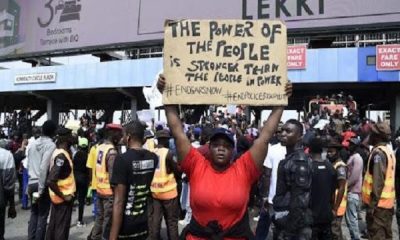International
Coup D’etat Only The Symptom, Deal With The Disease Instead – Atiku To African Leaders.

Atiku Urges African Leaders To Focus On Disease Birthing Coups.
By Anthony Beauty
Atiku Abubakar, the presidential candidate of the Peoples Democratic Party (PDP), has called upon African leaders to address the root causes of military coups triggered by social unrest and disease, rather than solely targeting those who carry out these actions. Expressing his concerns about the growing trend of military takeovers on the African continent, Atiku highlighted the recent coup in Gabon as the eighth such incident since 2020. He condemned the coup in Gabon, asserting the importance of upholding democracy and democratic governance as the preferred modes of leadership. Atiku emphasized that the increasing number of military takeovers in Central and West Africa is alarming and suggests a need to address the underlying issues that contribute to such coups, much like tackling a disease at its source rather than addressing its symptoms. The Gabon coup, in particular, led to the seizure of power from President Bongo by the Gabonese Army, resulting in the arrest of President Bongo and some of his family members. Notably, significant sums of money were discovered during the arrest of Bongo’s cabinet members and

International
BREAKING: “GHOST SHIP” DISCOVERED ALMOST 140 YEARS AFTER IT SANK IN LAKE MICHIGAN
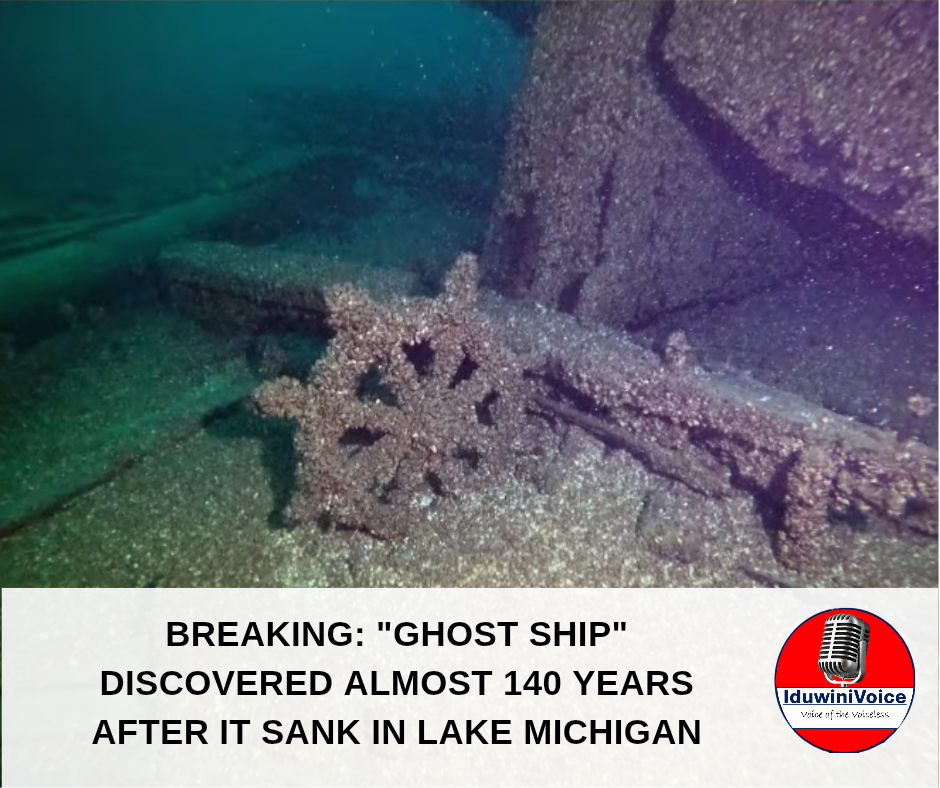
By Favour Bibaikefie
A citizen-science team has located the long-missing schooner F.J. King off Baileys Harbor, Wisconsin, ending over a century of fruitless hunts for one of Lake Michigan’s most storied wrecks. The Wisconsin Underwater Archeology Association confirmed the discovery, first made on June 28, 2025, using side-scan sonar. The 144-foot, three-masted cargo vessel, built in 1867, sank while hauling iron ore from Escanaba to Chicago. All crew survived.
Researchers led by maritime historian Brendon Bailod zeroed in after revisiting 19th-century accounts. Instead of relying on the captains estimate that the ship went down miles offshore, they searched near a lighthouse keeper’s report that masts were seen protruding closer to land. Within two hours, the team imaged an intact hull less than a mile from shore.
The wreck’s preservation surprised investigators: hatches and framing appears largely in place, though invasive quagga mussels coat the timbers-an ongoing threat to Great Lakes maritime heritage. The find resolves a mystery that spawned reward offers and repeated expeditions over the past 50 years.
The F.J. King’s story is emblematic of Great Lake commerce and peril in the late 1800s: a sturdy ore carrier lost in a midnight storm, with fishermen later snagging fragments in their nets and early lookouts glimpsing broken masts-clues that misled searchers for generations.
Officials say the discovery adds to a recent run of finds by Wisconsin volunteers and state archaeologists, who have documen multiple wrecks across the region. Further documentation of the site is expected, but its exact coordinates are being withheld to protect the wreck.
The above was as reported by the Associated Press, the Washington Post, Archaeology Magazine, CNN, and other outlets.
(c) IduwiniVoice
International
Dangote Refinery Exports Petrol To The U.S. For The First Time
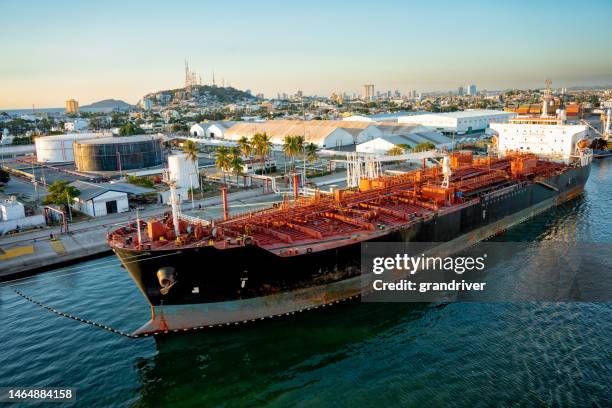
By Favour Bibaikefie
In a landmark development, Nigerian petrol refined at the $20 billion Dangote Refinery has land in the United States of America for the first time.
According to Reuters, citing industry sources and shipping data, the cargo was coordinated by Sunoco and commodity trader Vitol. The Gemini Pearl, a Panama-flagged product tanker, delivered about 320,000 barrels of gasoline to the Port of New York on Sunday. Reports indicate that Sunoco purchased the bulk of the consignment, while Vitol retained a smaller share.
Another cargo of Dangote petrol, reportedly sold by Glencore to Shell, is expected to arrive in New York on September 19.
Analysis say the back-to-back deliveries mark a significant breakthrough, showing that the Lagos-based Refinery is capable of meeting the U.S.’s rigorous fuel quality standards. The milestone further highlights the refinery’s growing supply chain.
Source: Reuters.
International
Coastal Resilience, Policy, and Governance: Implications for Economic and Environmental Sustainability in Ijawland.
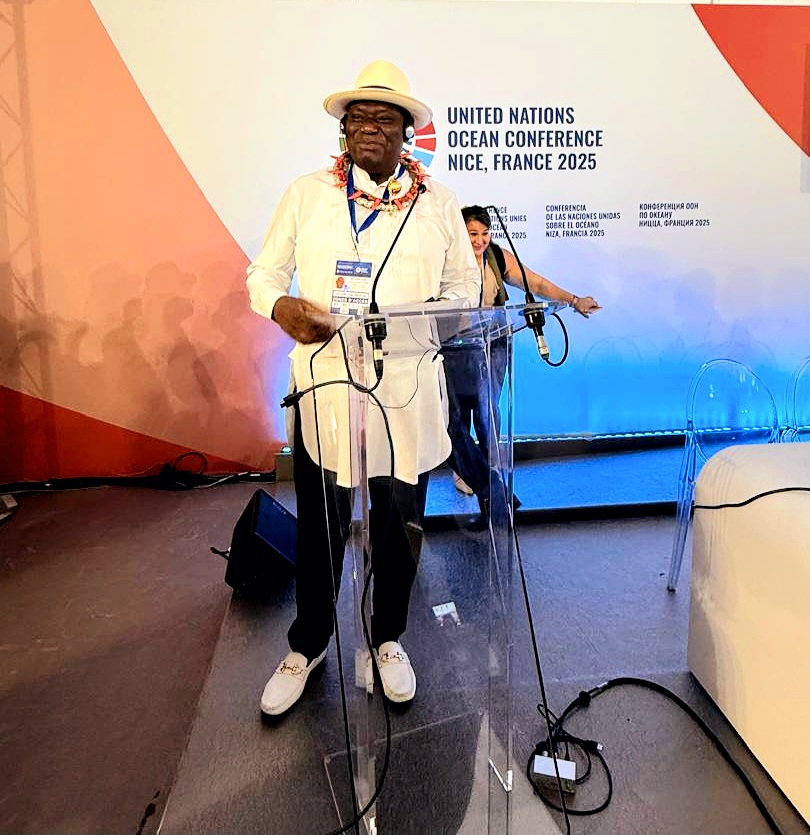
Being an Address by Prof. Benjamin O. Okaba, President of Ijaw National Congress (INC) Global, on the Occasion of the Ocean Rise and Coastal Resilience Summit, at Nice, France, on the 7th of June, 2025.
His Excellencies, Distinguished Guests, Esteemed Colleagues, Ladies and Gentlemen, I bring felicitations from the Ijaw National Congress (INC), the apex socio-cultural organization of the Ijaw people, one of the four largest ethnic nationalities of Nigeria.
I stand before you today on the occasion of the Ocean Rise and Coastal Resilience Summit 2025 (holding in Nice, France) to address a critical issue that affects our very essence and existence as a people: As the President of the Ijaw National Congress, I consider it important to highlight the implications of these issues for economic and environmental sustainability in Ijaw Land, at this important platform.This is inspite of our natural endowment experience as master mariners.
The Ijaw Reality
As an indigenous nation living in the Niger Delta, we are no strangers to the devastating impacts of climate change, environmental degradation, and oil pollution. Our people have borne the brunt of extractive exploitation, with our lands, waters, and ecosystems scarred by decades of neglect and abuse since 1956/1958, when oil and gas was first discovered in commercial quantities in Oloibiri in Ogbia Local Government Area of the present Bayelsa State, Nigeria. Rising sea levels, ocean surges, and flooding events threaten our very existence.
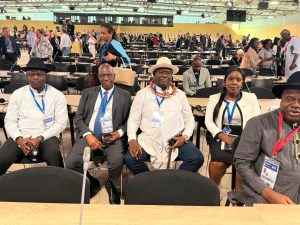
The Challenges We Face
Ijaws occupy over 60% of the entire Nigeria coastline, from the literal indigenous ljaw communities on Akwa lbom, Rivers Delta, Ondo, and Lagos States in Nigeria. Infact ,the ocean and it’s divers marine and it’s acquatice resources defines the ljaw identity livelihood systems and heritage Our communities are on the frontlines of climate change, facing rising sea levels, storm surges, and environmental degradation. The impacts are far-reaching, from damage to infrastructure and livelihoods to threats to our very way of life. We have seen our mangrove forests, a vital component of our ecosystem, being destroyed, and our fisheries being depleted. Our people are struggling to cope with the loss of their livelihoods and the degradation of their environment.
The Impact on Our Economy
The impact of climate change and environmental degradation on our economy is significant. Our fisheries, agriculture, and tourism sectors are all vulnerable to the effects of climate change. The damage to our infrastructure, such as roads, bridges, and buildings, is also a significant concern. We need to take immediate action to mitigate these impacts and ensure the long-term sustainability of our economy, but not without support from the national and international communities.
The Importance of Coastal Resilience
Coastal resilience is critical to the survival of our communities. We need to take a proactive approach to managing our coastal resources, protecting our infrastructure, and promoting sustainable livelihoods. This includes investing in climate-resilient infrastructure, promoting ecosystem-based adaptation, and supporting climate-resilient livelihoods.
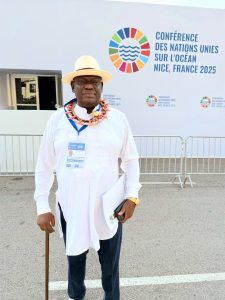
Our Demands
We demand that policymakers and stakeholders at national and international levels prioritize coastal resilience, policy, and governance that supports the needs of our communities through the instrumentality of:
1. Integrated Coastal Management: Developing plans that balance economic, environmental, and social objectives. We need to ensure that our coastal management plans are integrated, inclusive, and sustainable.
2. Climate Change Adaptation: Supporting initiatives that help us adapt to the impacts of climate change. We need to invest in climate-resilient infrastructure, promote ecosystem-based adaptation, and support climate-resilient livelihoods.
3. Community Engagement: Ensuring that our communities are actively involved in decision-making processes. We need to ensure that our communities are at the forefront of decision-making and that their voices are heard.
4. Leveraging on Indigenous Knowledge and Technology: We need to review and update the existing indigenous capacities to be able to meet up with current challenges.lnfact a bottom -up approach is most promising.
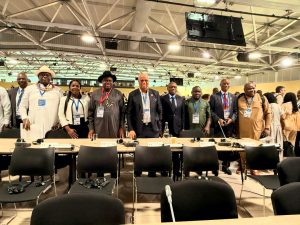
Our Call to Action
We call upon the global community to recognize the unique challenges faced by coastal communities like ours. We seek solidarity, not charity. Coastal resilience must be built on justice, equity, and the recognition of our rights as indigenous peoples. We demand:
1. Direct access to climate finance for subnational entities and local communities.
2. A UN Convention for the Conservation of River Deltas, recognizing the specific needs and challenges of deltaic regions.
3. Technological partnerships to support our efforts in mangrove restoration, early warning systems, and integrated coastal zone management.
4. South-South cooperation between deltaic states, sharing knowledge and best practices.I would advise that the Governor’s of Akwa lbom,Bayelsa,Cross Rivers, Ondo and Lagos States should domestic the ideals of the Global initiative for the fight against the menance of Climate Change and collaborate amongst themselves as regional partners and collaborate with the relevant international agencies. Systemic climate adaptation and environment integrity would be easier actualized with dignity.
We call upon all stakeholders to join us in this effort. Let us work together to build a more resilient and sustainable future for Ijawland. We will not be deterred by the challenges we face. We will rise, and we will thrive. We need to take immediate action to address the impacts of climate change, promote sustainable development, and protect our environment.
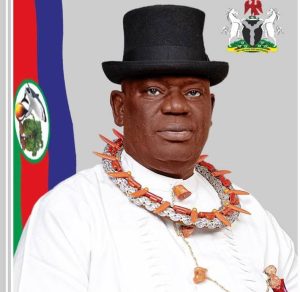
Our Commitment
The INC reaffirms our commitment to building resilience, providing sustainable development and protecting the right of the people This position is it n line with our persistent resolve on Self determination and control of our God given Water and Land resources. We are committed to promoting the interests of our people and protecting our environment. We will continue to advocate for policies and practices that support our communities and ensure a sustainable future. We will work with policymakers, stakeholders, and our communities to develop and implement effective coastal management plans, support climate change adaptation initiatives, and promote sustainable livelihoods.
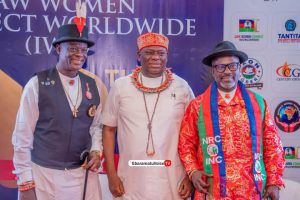
Conclusion
In conclusion, I want to emphasize that coastal resilience, policy, and governance are critical to the survival and prosperity of our communities. We need to take a proactive approach to managing our coastal resources, protecting our infrastructure, and promoting sustainable livelihoods. I urge all stakeholders to join us in this effort and to work together towards a more resilient and sustainable future for Ijaw Land.
Thank you.

